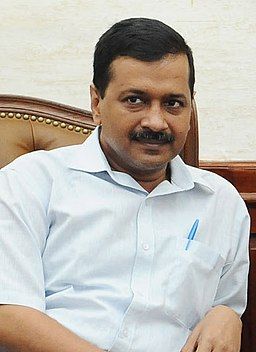AAP Minister Atishi warns that Delhi’s Chief Minister faces potential coma due to serious health issues while incarcerated
Delhi Chief Minister Arvind Kejriwal’s health has become a focal point of concern as the Aam Aadmi Party (AAP) raises alarms about his well-being while imprisoned in Tihar Jail. AAP Minister Atishi reported that Kejriwal is at risk of severe health complications, including coma and brain stroke, due to fluctuating sugar levels associated with his long-standing diabetes. Kejriwal, who has been jailed since March 21 after his arrest by the Enforcement Directorate (ED) in connection with a money laundering case tied to the now-scrapped 2021-22 excise policy, faces ongoing health scrutiny.
Atishi highlighted the potential dangers of Kejriwal’s condition during a press conference, asserting that the ruling Bharatiya Janata Party (BJP) is intentionally jeopardizing his health. She emphasized that diabetics like Kejriwal can suffer extreme health crises when their blood sugar levels fluctuate. According to Atishi, if Kejriwal’s blood sugar were to drop significantly, it could lead to fatal outcomes such as coma or brain haemorrhage.
Embed from Getty ImagesIn response to these claims, Tihar Jail officials provided a more measured assessment of Kejriwal’s health, revealing that he had only lost 2 kg since his incarceration, countering AAP’s assertion of an 8.5 kg loss. Jail officials indicated that Kejriwal’s weight had fluctuated between 63.5 kg and 66 kg, while stating that his health is monitored regularly by a medical board from AIIMS.
Despite receiving interim bail from the Supreme Court on July 12, Kejriwal remains in custody due to additional charges filed by the Central Bureau of Investigation (CBI) related to a separate corruption case. The AAP has alleged that the BJP is using these investigations as a political weapon against Kejriwal.
The ongoing dispute over Kejriwal’s health and the conditions of his imprisonment have escalated tensions between the AAP and the BJP, with AAP leaders demanding the release of their chief. As Kejriwal’s health concerns mount, the political landscape in India continues to evolve, reflecting deeper issues regarding power dynamics and governance.
Analysis
Political:
The controversy surrounding Kejriwal’s health is emblematic of the larger political struggle between the AAP and the BJP. By raising alarms about Kejriwal’s well-being, the AAP aims to galvanize public support and pressure the government for his release. This incident highlights the ongoing battle over political legitimacy in India, where leaders often resort to claims of victimization to bolster their narratives. The BJP’s strategy to use agencies like the ED and CBI against opposition figures has raised questions about the integrity of these institutions and the lengths to which political parties will go to secure power.
Social:
Kejriwal’s health crisis serves as a mirror reflecting societal debates about justice, governance, and the treatment of political figures. The public’s response to the AAP’s claims indicates a growing concern over political repression in India. As citizens grapple with the implications of governmental actions against opposition leaders, this situation could lead to increased civic engagement and mobilization around issues of democratic integrity and human rights.
Racial:
While the immediate narrative does not directly involve racial dynamics, the incident underscores how political issues in India often intersect with regional identities. Kejriwal’s background as a leader representing the AAP, a party that seeks to address the needs of the common people in Delhi, resonates with various communities facing socio-economic challenges. As political narratives evolve, the role of caste and regional affiliations will continue to influence public perception and engagement.
Gender:
Gender dynamics also play a crucial role in this narrative. The prominent involvement of AAP leaders like Atishi in advocating for Kejriwal’s health raises questions about women’s roles in Indian politics. Their participation showcases a shifting landscape where women are increasingly taking on leadership positions, pushing back against established norms in a traditionally male-dominated political environment.
Economic:
The ongoing saga surrounding Kejriwal’s incarceration and health has economic implications as well. The political instability surrounding his leadership can impact Delhi’s governance and economic policies. Investors and businesses closely watch political events, as instability often leads to uncertainty in the market. Additionally, the expenses incurred in the legal battles involving Kejriwal and the AAP could strain public resources, further complicating economic discussions in the capital.
